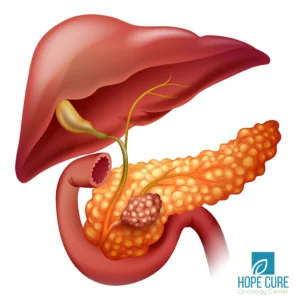For pancreatic cancer, there are several surgical interventions, such as
Surgery for a cancerous tumor in the head of the pancreas
The specialist resorts to this type of surgery if the cancerous tumor is located in the head of the pancreas. It should be noted that this procedure is a serious one and requires extreme precision.
Surgery for a cancerous tumor in the body and tail of the pancreas
This type of surgery requires the removal of the spleen. This procedure is used when the tumor is located in the body and tail of the pancreas.
Total Pancreatectomy
In some cases, the doctor may remove the entire pancreas and allow the patient to live without it by taking...
 English
English



